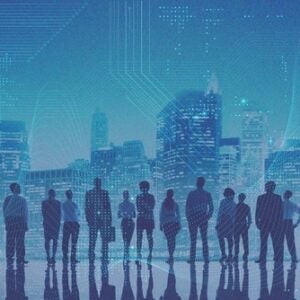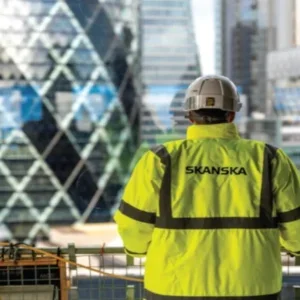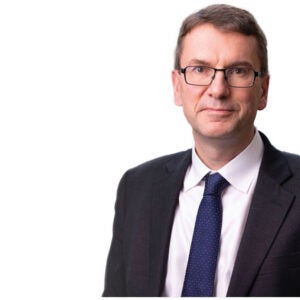
For finance professionals, the speed of change in the years leading up to 2020 has been unprecedented. We’re now standing on the precipice of a new age of artificial intelligence (AI) and it is a crossroads that could lead in a number of different directions.
“In short, the advent of super-intelligent AI would be either the best or the worst thing ever to happen to humanity,” said the late physicist Stephen Hawking. “The real risk with AI isn’t malice, but competence. A super-intelligent AI will be extremely good at accomplishing its goals, and if those goals aren’t aligned with ours, we’re in trouble.”
While machines surpassed human capabilities to calculate complicated mathematical equations and even dominated former world champion Gary Kasparov at chess decades ago, there have historically been noticeable gaps in their proficiencies. Empathy, language acquisition and creativity have been listed as long-standing weaknesses, but we are now at a crucial juncture in this regard.
In the late 1800s, Alexander Graham Bell toiled in his studio to invent the telephone by experimenting with electrical systems to send audio data, before making a giant leap forward that revolutionised cross-border communication. Fast forward to 2019, and the past few years have seen similar exponential strides onward in the field of AI.
Connectivity during coronavirus
Amid so much technological and societal transition, finance leaders are desperately hunting for people with a range of new digital skills. In a Robert Half survey, CFOs reported that technology, experience and aptitude are the most difficult to find in accounting and finance job candidates.
Now Covid-19 has also caused disruption to the status quo on a massive scale. “The global Covid-19 pandemic is impacting us daily from all angles – health, economics, logistics, politics, education, relationships and more,” said Chris Yates, general manager of learning and development at Microsoft, in a recent interview. “For people working in all industries and sectors, this crisis is creating a huge amount of fear and anxiety. In many ways, it illustrates just how vulnerable we are as human beings, and is causing us to question every assumption we had about the future. With respect to making the big decisions about allowing workers to work remotely, healthcare benefits, and other forms of economic relief, corporations are stepping up to fulfil a leadership role. For leaders, this necessitates a closer look at the values and underlying purpose of their organisations, and re-examine the way they are making decisions.”
60%
Employees want to connect to company direction in a meaningful way.
The Society for Human Resource Management
“I think it starts not so much with the workplace, but with education and wider society, thinking differently about how you put together a jigsaw of new skills, new interests, that are actually evolving all the time.”
Chris Yates
His new book, Share, co-authored with Linda Jingfang Cai, the global head of learning and talent development at Aon, makes the case that we are entering what has often been described as the fourth industrial revolution. The power and influence that corporate institutions hold over wider society has reached new heights, as global brands and technological monopolies infiltrate every aspect of modern life. Many traditional organisations are unprepared for this new digital world, as they fail to recognise the extent of the changes that will be required to operate and compete.
For finance executives, Jingfang Cai believes that at an individual level, there’s often very little dialogue about the plethora of changes that are taking place. “There’s fear about losing jobs, [and] future employment opportunities at a company level. Then there’s also questions about what’s the purpose and the mission?” asks Jingfang Cai. “Is it shareholder value? Is it commodity? Is it what’s right? And then, at an even bigger society level, there is no effective dialogue, even multilaterally, to address climate change and biodiversity, and all these other issues. So, we find it fascinating that we’re in this era where a lot of dialogue is highly emotional. On social media, people are not thinking or rational anymore. They don’t have time to do research and they just read whatever is put in front of them. So, the question is really, are we still in a winner takes all environment or do we need to rethink to a sharing approach?”
According to Jingfang Cai, there’s evidence suggesting that over 60% of employees now want to connect to company direction in a meaningful way. They also want to influence strategy to the same extent. In fact, she says, all generations want to work with a clear purpose. The key for Yates and Jingfang Cai is adapting this sense of purpose for finance professionals to company learning programmes that incorporate the contrasting skills of different generations.
“If I look at the multi-generational workplace, to me, the number one thing is to suspend judgement of not only older workers looking at younger workers, but the other way around as well,” says Yates. “There are certain assumptions we make with people who are beyond 55. That’s completely unfair. So, I think for the two to build out, your question as leaders, executives, leaders, middle managers and HR is how do we prepare and facilitate a workplace that has genuine dialogue and exchange across all the different groups?”
A disrupted industry
Whenever there’s been new technology coming through in the world, we’ve had disruptions to society. Jingfang Cai gives the example of the modern factory where traditional workers like farmers migrated in huge numbers from villages to live in cities. This was a massive disruption of society, where people had to learn new skills and get their minds around new ways of working. For finance professionals, the broad range of fresh aptitudes can often be overwhelming.

“When we look at something like LinkedIn, you see new jobs being created [that are] associated with some of the new technologies coming in, which will literally be made up,” says Yates. “So, I think it’s a challenge for universities. It’s a challenge for education. In terms of, ‘do I just go study history’? And I look at my own sons and his preferences. He wants to study a little bit of robotics. He wants to study geography. It’s actually this mix of creative things. I think it starts not so much with the workplace, but with education and wider society, thinking differently about how you put together a jigsaw of new skills, new interests, that are actually evolving all the time.”
As these new aptitudes have made their way into the workplace, Jingfang Cai reveals that she changed her career because companies don’t seem to be doing enough in terms of rescaling and upskilling the workforce. She believes that there is now a lot of tension between humans and machines, due to the wealth of technology making its way into the back offices of finance professionals and chief executives.
“How do you actually assess where you lack critical skills, and there’s a tendency of going to the market and just buying whoever has data scientists, or analytical skills,” explains Jingfang Cai. “But do you just buy? Or could you actually rethink, redevelop and deploy your talent? We are losing control because we’re not talking more about transferable and human-centric skills, and don’t really have that association.”
In terms of future revolutionary changes as a result of technology, Yates talks about the example of driverless cars, where these vehicles could potentially change the topography of cities completely because transportation networks will be fundamentally altered. The whole social and economic nature of a city could evolve through this one change. Like the advent of smartphones and personal computers, these new developments could alter the world on a massive scale. “I wouldn’t need to have a car, I could share it with the community and my car picks people up,” concludes Yates. “So, one small thing, and that’s out of many things that could change what our community looks like. What that calls for is empathy and compassion at the core of making the decisions, as they unfold bit by bit, so that you’re thinking about some of the unintended consequences.
“Do you just buy? Or could you actually rethink, redevelop and deploy your talent? We are losing control because we’re not talking more about transferable and human-centric skills, and don’t really have that association.”
Linda Jingfang Cai
Therefore, you’re thinking with compassion, as opposed to purely profit, so that as the unexpected happens, which it will, and it does every day, because of the rapid pace of technology, you’re actually thinking about the impact on humans. Whether its luminous cats or driverless cars, or whatever it is, it’s actually really important at the point of invention, at the point of discovery, to pause and think, what is the impact of that? And therefore, what might I want to mitigate? Or what principles do I want to put in place?”






